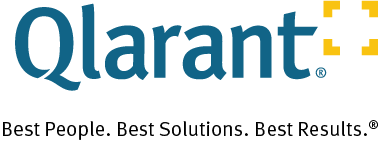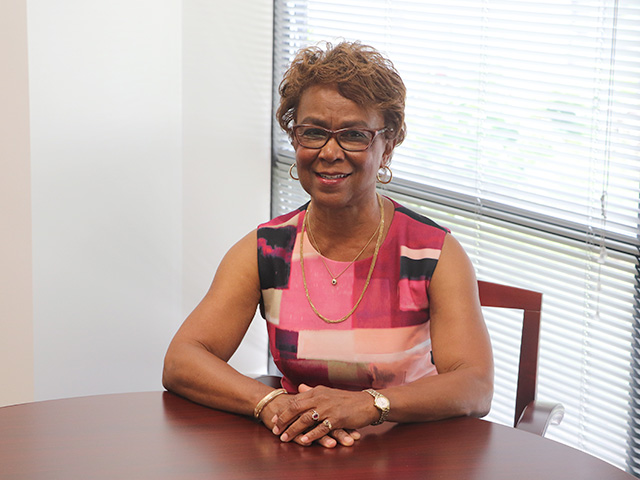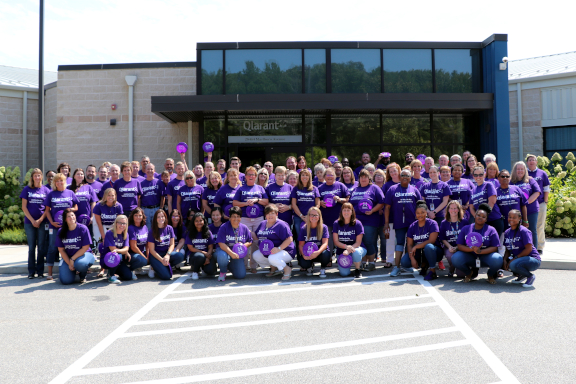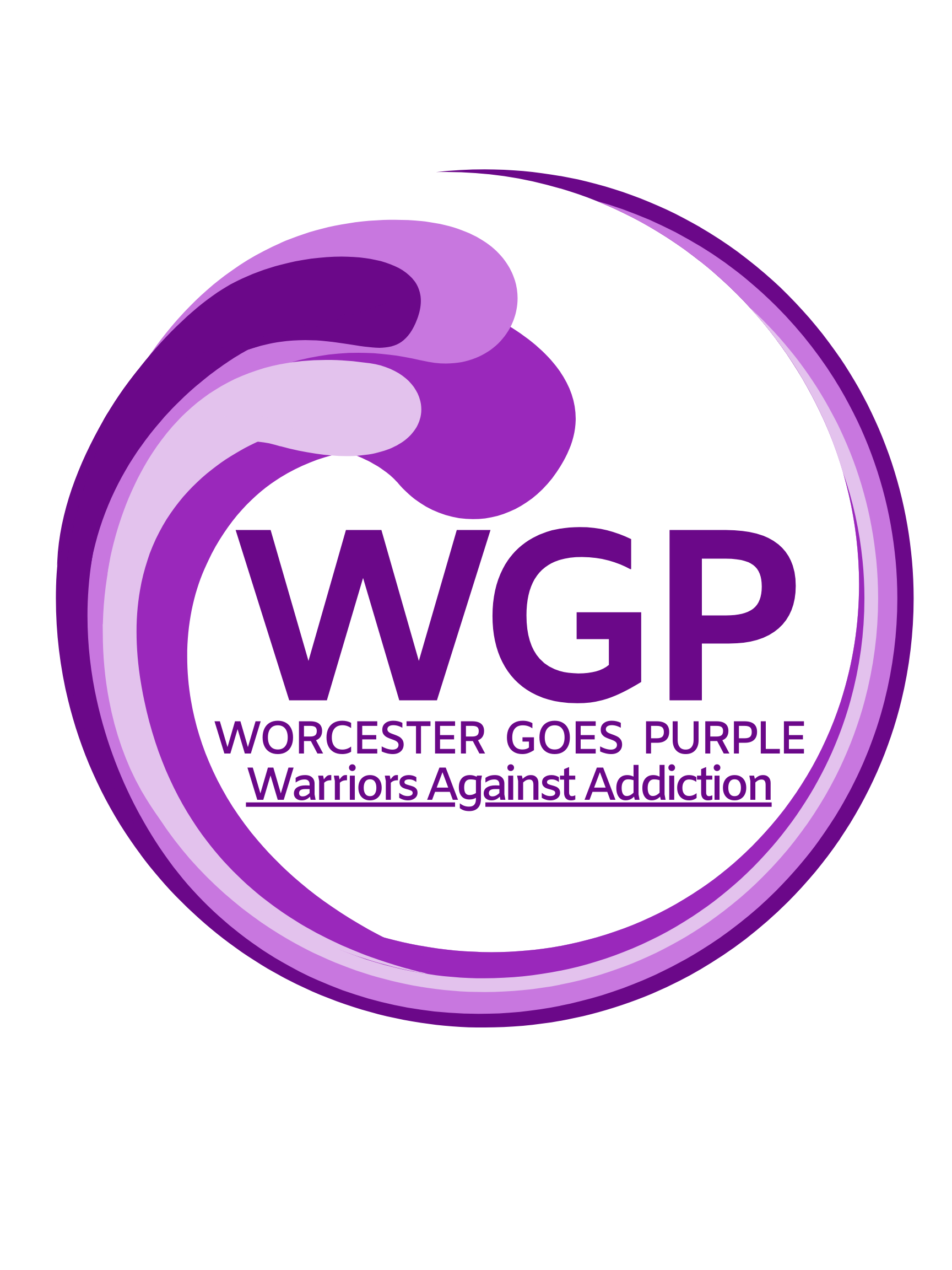Success Stories: Chapter 18 – International Rescue Committee

This year, the Qlarant Foundation provided $412,000 in grants to 12 previously funded organizations and to 6 new organizations. Among the new grantees is International Rescue Committee (IRC) in Silver Spring, Maryland. This organization has resettled over 10,000 humanitarian immigrants over the past 15 years.
The International Rescue Committee helps people whose lives and livelihoods are shattered by conflict or disaster to survive, recover, and gain control of their futures. The organization was founded in 1933 at the behest of Albert Einstein and currently operates in over 40 countries and 25 U.S cities to restore safety, dignity, and hope to millions who are uprooted and struggling to rebuild their lives.
The primary activities of the IRC include:
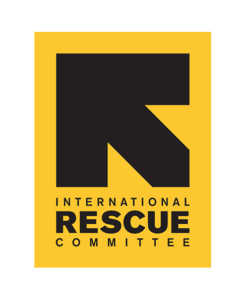
- Assisting refugees to access housing and public benefits; provides crisis intervention, family counseling and referrals to community resources.
- Connecting clients to primary care providers and specialists, mental health supports and food security resources.
- Assisting with entry-level employment, financial literacy training and attaining job upgrades.
- Assisting with school enrollment, training school staff to better support refugees’ unique needs and to ensure educational success.
The IRC in Silver Spring helps refugees become economically self-sufficient and socially integrated in communities across Montgomery County and Prince George’s County. Last year, the Silver Spring Office resettled 497 refugees and other humanitarian immigrants. They were able to find entry-level employment for 186 job seekers with average wage of $13.73/hour and placed 92 clients in job upgrades with average wage of $14.76/hour.
IRC Silver Spring was also able to help 21 refugees with complex health conditions. Each received specialized case management support to overcome their barriers to well-being. In addition, the program enrolled 102 children in schools and 170 children participated in after-school programs.
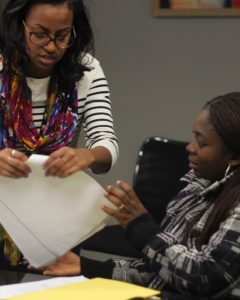
Many of the accomplishments of the IRC are the result of work performed by volunteers. This organization has a full-time volunteer and family mentor coordinator who oversees the recruitment, administration, and onboarding of approximately 268 interns and volunteers each year. These individuals provided the organization with approximately 24,000 hours of service. The IRC recruits between 20-30 interns each semester (3 semesters per year) within its many programs. Interns learn how the program operates and assist staff to complete many program’s activities to assist clients. The Family Mentor program matches individuals, families, or groups with refugees. Mentors volunteer once a week for 6 months to help the client with personal objectives including English acquisition, socialization, and community integration activities. Volunteers run a free onsite “shop” where clients can take clothing and other needed goods donated by the community, free of charge. Other volunteers help with the IRC’s front desk, tutor refugee youth in English and homework, collect donations, set up apartments for new arrivals, and work with refugees to apply for jobs online.
Trafficking is prevalent throughout Maryland, Virginia, and the District of Columbia. These VOT clients often endure significant physical, emotional, and psychological trauma during and after their captivity. As a result, survivors often have limited access to proper health care. Having possibly faced deprivation of food and sleep, physical, psychological, or sexual violence, high levels of stress and various other traumatic events, survivors often require a complex array of health care support that not only focuses on immediate needs but also long-term recovery.
The following stories illustrate the plight victims of trafficking and the impact that the IRC has on the lives of these victims.
Success Story #1:
Liya’s medical issues started abroad where she was working as a housemaid for a prominent family with residency and businesses both in the U.S. and abroad. She later moved to the U.S. with her employer after being promised better pay, medical treatment and medical insurance.
Four months later, Liya reached out to the National Human Trafficking Hotline because she was going through physical and emotional abuse by her employer. She was isolated, not receiving adequate pay, had never seen a doctor to address her kidney problem as promised and only had over-the-counter medication to manage her pain. The IRC connected Liya with primary care at Community Clinic Inc., in Silver Spring, Maryland, where she used IRC’s administered Trafficking Victim Assistance Program (TVAP) cash assistance to pay the fee on a sliding scale. She received a referral to see a Hematologist and a Nephrologist through the Montgomery County Program that serves low-income patients. Her kidney issues were re-confirmed, and she received treatment.
Success Story #2:
A survivor of labor trafficking from El Salvador, Maria, came to Maryland for her safety. At the age of 17, she was identified as a VOT unaccompanied minor in Arizona. After her release from the detention center, she could not stay in Arizona because she felt her traffickers could possibly locate and harm her. Three months after her enrollment into the Anti-Trafficking Program at the IRC, Maria discovered that she was pregnant and urgently needed help. She was living with a brother who was not able to help.
The IRC program coordinator connected Maria with Shady Grove Pregnancy Center to confirm the pregnancy and get guidance on prenatal care. The center provided culturally appropriate care through a provider who spoke Spanish. They also accepted fees on a sliding scale after the IRC wrote a supporting letter, serving as proof of income. Since the client was new to the area, the IRC team provided transportation orientation and taught the client how to schedule and travel to appointments independently. Additionally, the client received guidance on applying for medical insurance, food stamps, WIC and temporary cash assistance.
The Qlarant Foundation is saddened by the plight of the victims of human trafficking. We are pleased to support the vital work done by the International Rescue Committee to help these innocent victims.
